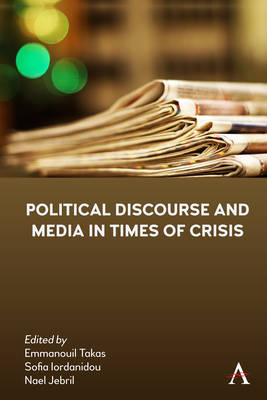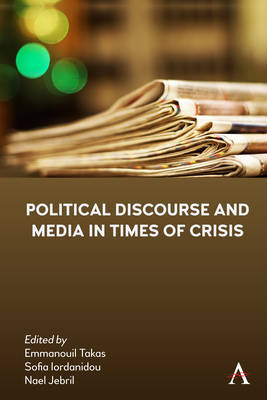
- Afhalen na 1 uur in een winkel met voorraad
- Gratis thuislevering in België vanaf € 30
- Ruim aanbod met 7 miljoen producten
- Afhalen na 1 uur in een winkel met voorraad
- Gratis thuislevering in België vanaf € 30
- Ruim aanbod met 7 miljoen producten
Zoeken
Political Discourse and Media in Times of Crisis
€ 177,45
+ 354 punten
Omschrijving
The changes triggered by the global financial crisis in 2008, the immigration flows and the covid-19 pandemic in contemporary societies have transformed the way individuals communicate, create content, and 'consume' publicly available information. Consequently, political, societal, and financial pressures have led to alternative forms of media practice and representations and disrupted the core relationships and dynamics between politics, journalism, and society. In this context, several challenges emerge which are related to deeper social and cultural changes. Such challenges influence political communication and its relationship with the media and further impact the boundaries between private and public domains. Some of these challenges also constitute a direct challenge to democratic values and in some cases work against the preservation and strengthening of democracy. Moreover, all these developments are taking place at a time when democracy itself and its 'chronic diseases' are under criticism by new forms of authoritarianism and totalitarianism. This edited book examines the key challenges in political discourse and journalistic practice in times of crisis. It focuses on European paradigms and links political rhetoric and media challenges with the societal, political, and financial crises from 2008 until the present.
Specificaties
Betrokkenen
- Uitgeverij:
Inhoud
- Aantal bladzijden:
- 280
- Taal:
- Engels
- Reeks:
Eigenschappen
- Productcode (EAN):
- 9781839982828
- Verschijningsdatum:
- 4/04/2023
- Uitvoering:
- Hardcover
- Formaat:
- Genaaid
- Afmetingen:
- 152 mm x 229 mm
- Gewicht:
- 399 g

Alleen bij Standaard Boekhandel
+ 354 punten op je klantenkaart van Standaard Boekhandel
Beoordelingen
We publiceren alleen reviews die voldoen aan de voorwaarden voor reviews. Bekijk onze voorwaarden voor reviews.










